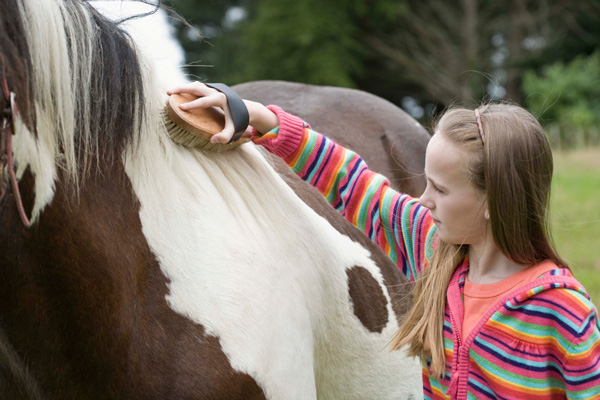
There’s an old saying that when times are good, people like doing business with their friends, and when times are bad, they only do business with their friends. While as a farm or stable owner you don’t have to invite your clients to your house for Sunday dinner each week, you do have to have a relationship that is based on trust and shared values. But, sometimes having friends as clients can be more difficult than working with people you don’t know as well.
While it’s much harder to fire a friend than an associate or someone who isn’t close to you, if the basis for the business relationship isn’t working, clients (even your friends) will fire you. And the same is true from your point of view. If you have friends who are clients and it’s just not working out, then you have to find a way to fix the problem. That might mean finding them another place to board their horses.
Doing business with friends is difficult. That “extra” connection you have with them can make raising rates or giving them bad news much harder than if you didn’t have a personal connection with that person.
Most farm and stable owners develop fairly close relationships with their boarders. After all, you are inviting them into your barn and your life. You might even spend more time around them than you do some of your family. Long hours in the barn, traveling to shows or rides, and dealing with life and the sorrows it can bring through our animals tends to make the bond between horse folks fairly tight.
So how to you talk to these “friends” when things aren’t going well or you need to raise your rates?
Trust and Honesty
You must remember that you’re in business, and in this business you have certain obligations and rights. So do your clients. Make sure all of your boarders understand the rules and the services that you provide. While everyone will make exceptions occasionally—you might care for the horses of a self-serve boarder during an emergency or for a wedding—you need to avoid the trap of providing more services than you are getting paid for.
And between friends, that can be difficult.
One friend of mine was at a facility where each person was responsible for the daily care of her horse. My friend managed a shop, so her hours didn’t start as early as many of the other women who boarded there. Gradually my friend found herself getting asked to feed, water, turn out, blanket, unblanket, etc. the majority of the horses in the barn each morning.
What started out as a favor turned into a two-hour morning job.
While this is an issue between boarders, as the owner you might find yourself stuck in the middle when the overworked “friend” decides to stop doing morning chores for everyone or takes her horses and goes elsewhere. Getting the other owners back in the schedule of getting up early to go to the barn before work might cause some problems.
Farm and stable owners can find themselves in that same position. One boarder told you she had to be in the office early for a week because of a project, so you agree to feed and turn out her horse in the morning for that week. It happened again the next month. Then she said, “Well, since you are in the barn already each morning, can’t you just feed and turn mine out when you do yours?”
Learn to Say No (or Not for Free)
There’s another saying that goes, “No good deed goes unpunished.” While that’s a bit cynical, it’s where the previous stable owner and boarder found themselves. By doing a “favor” for someone, they got caught up in a routine that cost them time and caused ill feelings.
So how do you tell a friend “no”? No one likes to feel like a “bad” person, but as the owner of the farm or stable, you already have a more-than-full-time job. And if you are keeping horses of your own, then providing “free” services to your friends takes away from your own enjoyment of your farm and horses. Plus, it isn’t fair to do those free services for one boarder when you aren’t doing them for other boarders.
That final sentence is a great way to help your “friend” understand why you won’t do their work for them for free.
If you provide written contracts for your boarders (including your friends), they know what your responsibilities are and what their responsibilities are. They know the cost of the basic services they are getting, and they should know the availability and cost of additional services that you provide (and if you are willing to provide them).
Make sure there are no surprises. If your friend asks you to take care of her horses in the morning for a week because she’s working on a special project at the office, let her know up front that according to her boarding contract, you will charge her $X for those services. Make sure she understands that you are charging her because that is the only fair way to handle requests for extra services for all of the boarders.
Bottom Line
Whenever you are faced with a situation of one of your boarders asking for favors, make sure that you put on your “business owner” hat before responding. Friends will understand you need to make a living, and those who are looking for free services will get the message quickly.


